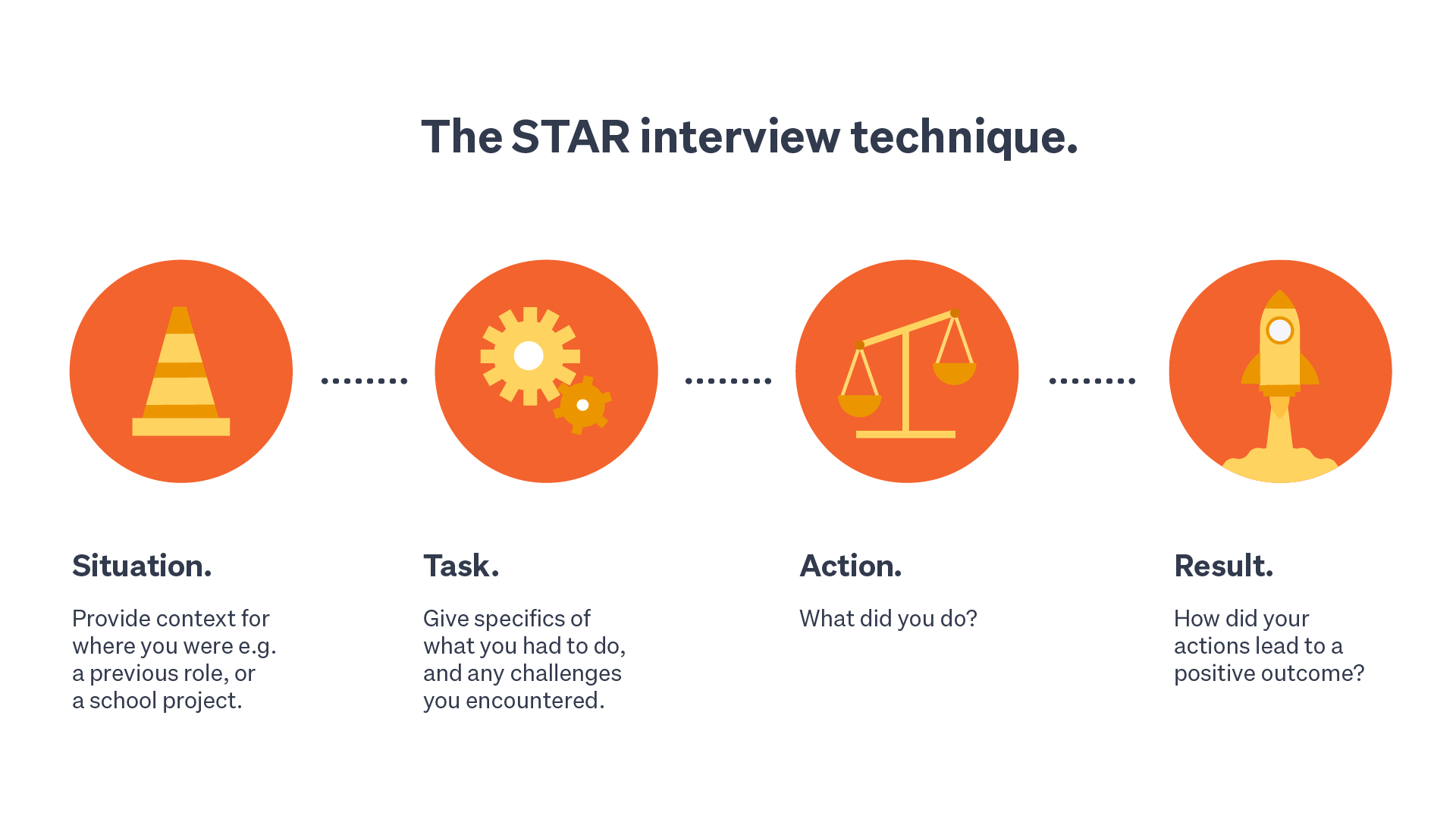Careers advice
The 30 most common behavioural interview questions + answers
There’s no need to fear behavioural interview questions.
Last updated: 16 October 2025
What you’ll learn:
What are behavioural interview questions?
Behavioural interview questions give the interviewer a rounded picture of you.
Why do interviewers ask behavioural interview questions?
What is the STAR method when interviewing?
The STAR method of answering interview questions.
The 30 most common behavioural interview questions
1. Teamwork
2. Decision making
3. Stress and pressure
Draw on real life examples when answering behavioural interview questions.
4. Prioritising
5. Successes and failures
6. Leading, and being managed
Example answers to behavioural interview questions
1. Tell me about a time you experienced conflict with a colleague, and how you resolved it.
2. Tell me about a time you’ve had to respond to criticism of your work
3. How do you handle stress?
4. What’s the biggest mistake you’ve made professionally?
5. Tell me about a time you’ve exercised leadership
How do you prepare for a behavioural interview?
Other articles you might like






